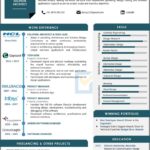In today’s world, where problem-solving and critical thinking skills are highly valued, the significance of assessments like the Inductive Reasoning Test cannot be overstated. Whether you’re a job seeker aiming to impress potential employers or an educator striving to understand your students’ cognitive abilities, grasping the essence of these tests is essential. Psychometric tests are a great way to measure the cognitive ability of your employees. Allowing them to be scored and sorted into categories based on their cognitive capability, psychometric tests can offer a more efficient way to identify talent with
So, what exactly is an Inductive Reasoning Test? Simply put, it’s a tool used to evaluate an individual’s ability to identify patterns, make generalizations, and draw logical conclusions based on limited information. Think of it as a mental gym, where your logical muscles are flexed and strengthened through a series of thought-provoking exercises.
But why is this type of test so crucial? Well, to start, it delves into one of the fundamental pillars of problem-solving: logical reasoning. By analyzing patterns and making educated guesses, individuals showcase their capacity to think critically and adapt to new situations—a skillset that’s invaluable in today’s dynamic and fast-paced environments.
Moreover, Inductive Reasoning Tests fall under the broader umbrella of psychometric test, which play a pivotal role in understanding human cognition and behavior. They provide insights into an individual’s aptitude, personality traits, and potential performance in various roles, be it in the workplace or academic settings.
In this blog, we’ll explore the ins and outs of Inductive Reasoning Tests, diving into their importance, practical applications, and strategies for improvement. So, whether you’re a curious learner eager to enhance your logical reasoning skills or a professional seeking to leverage these assessments in recruitment processes, join us on this journey of discovery. Let’s unravel the significance of the Inductive Reasoning Test together.
Understanding Inductive Reasoning
Inductive reasoning is like detective work for the mind. It’s all about piecing together clues, spotting patterns, and making educated guesses to solve a mystery. Unlike deductive reasoning, which starts with a general principle and applies it to specific cases, inductive reasoning begins with specific observations and leads to broader conclusions.
Imagine you’re trying to figure out a friend’s secret recipe just by tasting the dish. You take a spoonful, savor the flavors, and start making guesses about the ingredients based on what you’ve tasted so far. Maybe you detect a hint of garlic or a dash of cinnamon, and from there, you start to build a picture of what might be in the recipe.
In the same way, inductive reasoning involves looking at specific examples or instances and then drawing generalizations or hypotheses from them. It’s about seeing the forest through the trees, recognizing underlying patterns that help us make sense of the world around us.
So, next time you’re faced with a tricky problem or tasked with making a decision based on incomplete information, think like a detective. Harness the power of inductive reasoning to connect the dots, unravel the mysteries, and unlock new insights.
Importance of Inductive Reasoning Test
Inductive reasoning tests are like mental mirrors reflecting our ability to navigate the complexities of the world. They’re not just about answering questions; they’re about showcasing our knack for spotting patterns, making connections, and thinking outside the box.
These tests are crucial for several reasons. Firstly, they provide a window into our cognitive abilities, revealing how well we can adapt to new information and draw logical conclusions. In a world where adaptability is key, this skill is more valuable than ever.
Secondly, they serve as powerful predictors of success in various domains, from academic achievement to job performance. Employers often use inductive reasoning tests to gauge a candidate’s problem-solving skills and potential for growth within a role.
Moreover, these tests help us identify our strengths and weaknesses, guiding us on a path of self-improvement and personal development. By pinpointing areas where we excel and areas where we can improve, we can tailor our learning and growth strategies accordingly.
In essence, inductive reasoning tests aren’t just assessments; they’re tools for unlocking our full potential and shaping our future trajectories. So, whether you’re preparing for a job interview or simply seeking to sharpen your cognitive skills, embracing the importance of these tests is the first step towards success.
Benefits of Incorporating Inductive Reasoning Test
Inductive reasoning tests aren’t just hoops to jump through; they offer a myriad of benefits that go beyond the surface level. Let’s delve into why incorporating these tests into various assessment processes can be a game-changer.
Firstly, they pave the way for fairer evaluations. Unlike some traditional assessment methods that may favor certain backgrounds or learning styles, inductive reasoning tests level the playing field. By focusing on logical thinking rather than rote memorization, they provide a more equitable measure of an individual’s abilities.
Moreover, these tests help to mitigate biases in selection processes. By relying on objective measures of cognitive skills, employers can make more informed hiring decisions based on merit rather than subjective judgments.
Additionally, incorporating inductive reasoning tests enhances decision-making processes across the board. Whether it’s selecting the right candidate for a job or identifying areas for improvement in educational settings, having access to reliable data from these tests empowers decision-makers to make smarter choices.
In summary, the benefits of incorporating inductive reasoning tests are clear: they promote fairness, reduce biases, and enhance decision-making. By embracing these assessments, we can create more inclusive and meritocratic systems that reward talent and potential.
Strategies for Improving Inductive Reasoning Skills
Improving your inductive reasoning skills is like sharpening a knife—it requires patience, practice, and the right techniques. Here are some strategies to help you hone your logical thinking abilities:
Firstly, practice with sample tests. Just like training for a marathon, regular practice is key to improving your performance. Seek out online resources or workbooks that offer sample inductive reasoning tests and tackle them regularly. Not only will this familiarize you with the types of questions you may encounter, but it will also help you develop strategies for approaching them more efficiently.
Secondly, focus on enhancing your logical reasoning abilities. Inductive reasoning is all about making logical connections and drawing conclusions based on evidence. Engage in activities that challenge your logical thinking skills, such as solving puzzles, playing strategy games, or participating in debates. The more you exercise your logical muscles, the stronger they’ll become.
Lastly, seek feedback and embrace continuous learning. Don’t be afraid to ask for feedback on your performance in inductive reasoning tests or seek guidance from mentors or tutors. Take note of areas where you struggle and actively work on improving them. Remember, mastering inductive reasoning is a journey, not a destination, so stay curious and keep pushing yourself to learn and grow.
Real-World Applications of Inductive Reasoning Test
Inductive reasoning tests aren’t just theoretical exercises; they have real-world applications that span across various fields and industries. Let’s explore how these tests are making an impact:
In the workplace, inductive reasoning tests are commonly used in recruitment and selection processes. Employers rely on these assessments to evaluate candidates’ problem-solving skills, adaptability, and critical thinking abilities. By assessing how well candidates can identify patterns and draw logical conclusions, employers can make more informed hiring decisions and identify individuals who are best suited for the job.
In educational institutions, inductive reasoning tests play a crucial role in assessing students’ academic aptitude and potential. These tests provide educators with valuable insights into students’ cognitive abilities and help them tailor their teaching methods to accommodate diverse learning styles. Moreover, inductive reasoning tests can help identify students who may benefit from additional support or enrichment opportunities.
Outside of traditional settings, inductive reasoning tests are also used in fields such as psychology, market research, and data analysis. Psychologists may use these tests to assess individuals’ cognitive abilities and diagnose cognitive impairments or learning disabilities. Market researchers may use inductive reasoning tests to analyze consumer behavior and identify patterns in market trends. Data analysts may use these tests to uncover insights from complex datasets and inform strategic decision-making.
In summary, the applications of inductive reasoning tests are far-reaching and multifaceted. Whether in recruitment, education, or data analysis, these tests play a vital role in assessing cognitive abilities, informing decision-making processes, and driving success in various domains.
Conclusion
In conclusion, the importance of inductive reasoning tests cannot be overstated. These assessments serve as invaluable tools for evaluating cognitive abilities, predicting success in various domains, and driving informed decision-making processes.
By understanding the essence of inductive reasoning and embracing the challenges and opportunities it presents, we can unlock new pathways to personal and professional growth. Whether you’re a job seeker aiming to showcase your problem-solving skills, an educator seeking to understand your students’ cognitive strengths, or a decision-maker looking to make informed choices, the insights gleaned from inductive reasoning tests can guide you towards success.
As we navigate the complexities of the modern world, let us remember the power of logical thinking, pattern recognition, and critical analysis. By honing our inductive reasoning skills, seeking continuous improvement, and advocating for fairness and inclusivity in assessment processes, we can create a brighter future where talent and potential are recognized and rewarded equitably.


